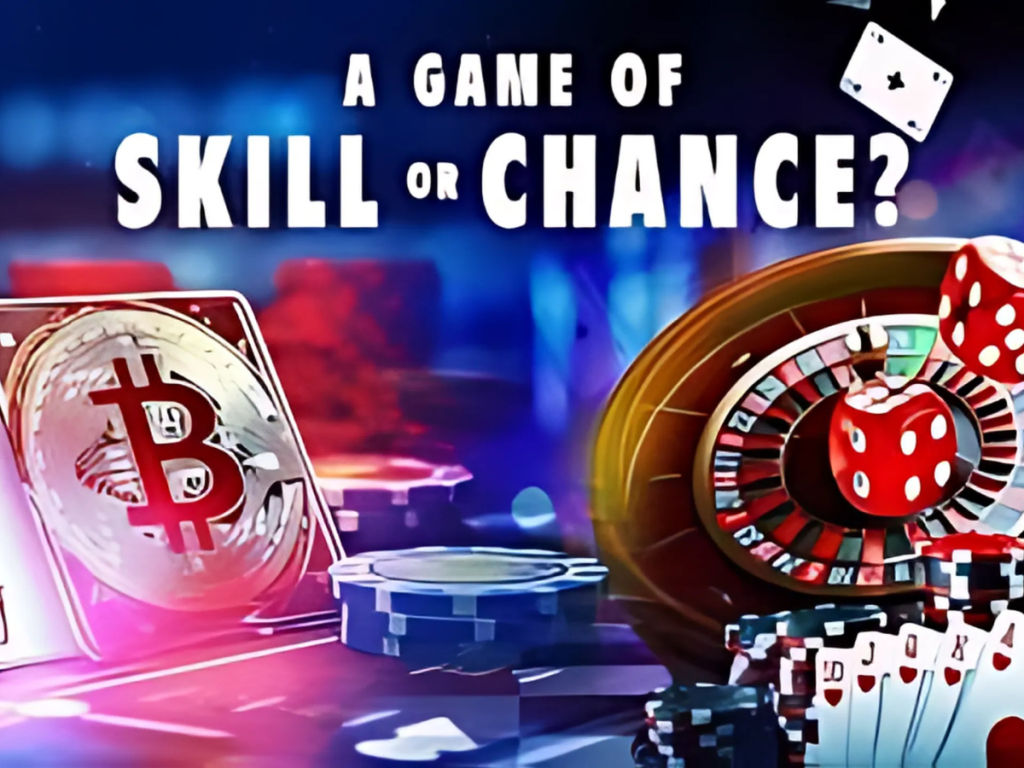Understanding skill-based vs chance-based games in India

Prepend to the content

India, with the increase in smartphones in use, is experiencing a major shift from traditional physical gaming to mobile and internet-based gaming. As this digital shift continues, some groups have raised concerns about classifying games that involve monetary transactions as e-sports. However, courts have consistently treated certain paid games as “games of skill” rather than gambling, which is regulated by The Public Gambling Act of 1867 and the Indian Penal Code, both of which require state licenses. For instance, in 2021, the Supreme Court rejected a Special Leave Petition (SLP) that claimed the Online Fantasy Sports (OFS) format was gambling, wagering, and betting, and not a “game of skill.” This distinction has been upheld by both High Courts and the Supreme Court, reinforcing the legality of skill-based gaming. Likewise, the online game of rummy has been recognized as a game of skill.
The gaming and gambling industry is constantly evolving. The distinction between games of chance and games of skill holds significant importance. These two categories not only define the player’s experience but also shape the regulatory frameworks and legal interpretations surrounding them. Understanding this difference, whether you’re playing online, at a casino, or in a local game hall, can help you make better choices and better understand how modern gaming works.
Games of skill focus on the player’s ability, knowledge, and strategy to determine the outcome. In these games, success depends on how well the player performs and makes decisions, not on chance.
Characteristics of Games of Skill
Strategy and Decision-Making
Players must apply tactics and logic to bypass opponents or achieve objectives. For example, a poker player strategically decides when to fold, call, or raise based on their hand and understanding of opponents.
Practice and Improvement
Success often grows with repeated play and mastery. Chess grandmasters, for instance, refine their techniques through years of study and practice.
Player Control
Players significantly influence the outcome with their choices, as seen in esports titles like Dota 2 or Counter-Strike, where individual and team strategies determine victories.
Examples of Games of Skill
Chess: A purely intellectual pursuit with no reliance on chance.
Poker: While it involves elements of probability, seasoned players can sway outcomes through reading opponents and strategic betting.
Esports: Competitive video games like Fortnite or League of Legends depend heavily on individual and team skills.
Sports Betting: Knowledge about teams, players, and statistics can give bettors an edge.
What Are Games of Chance?
Unlike skill-based activities, games of chance are governed by randomness and probability. In these games, luck is the predominant factor influencing results, with minimal player intervention.
Characteristics of Games of Chance
Randomness: Outcomes are determined by unpredictable elements, such as the roll of dice or the spin of a roulette wheel.
Probability and Odds: Players rely on calculated odds rather than personal skill. For instance, in lotteries, the chance of winning is predetermined and unaffected by the participant’s actions.
Limited Player Control: Success is often independent of player decisions, making these games appealing to casual participants seeking entertainment.
Examples of Games of Chance
Slot Machines: Each spin is randomized, with no influence from previous outcomes.
Roulette: Players place bets on a number or color, but the result hinges entirely on where the ball lands.
Lottery and Scratch Cards: Simple, luck-driven formats with preset probabilities of winning.
Legal Implications of Skill vs. Chance
The central government, through the Ministry of Information Technology (MeitY), has taken steps by issuing rules that define what qualifies as a ‘permissible game’ and can be categorized as a game of skill. While this is an important development, there is still much to be done. The next crucial step is to clearly outline the differences between a ‘game of skill’ and a ‘game of chance.’ Both types of games are popular on digital platforms, involve payments, and have winners. However, understanding these differences is key to ensuring clear regulations and maintaining fairness in the gaming environment.
One of the most important steps in regulating gaming is ensuring that content complies with permissible standards, such as preventing illegal activities like child abuse. MeitY, under the IT Act of 2000, has the authority to remove any content that violates these standards, helping maintain the integrity of gaming platforms. Equally crucial is ensuring the integrity of outcomes in ‘games of skill,’ where results are determined by the player’s knowledge and abilities, not by chance or manipulation. This distinction should be clearly defined, particularly for fantasy games, which rely on expertise to predict outcomes. The judiciary has consistently affirmed that these games fall outside the scope of gambling laws, and this should be regarded as settled law, with appropriate regulations applied. Furthermore, the role of self-regulatory organizations (SROs) is important in maintaining industry standards; they can monitor compliance, educate stakeholders, and address any deviations from the norm. SROs must take on more responsibilities to ensure the industry grows responsibly. Additionally, rules defining ‘games of skill’ should be consistent across both physical and online platforms. For example, horse racing should be regulated the same way whether it occurs at a racetrack or on an online platform. Skill-based games should maintain their integrity regardless of the setting and not become games of chance simply because they are played online. Simulation exercises could be useful in demonstrating the consistent application of skill in both offline and online environments.
The difference between skill and chance isn’t just a matter of theory; it has real legal effects, especially where gambling laws determine how businesses operate and get licenses. In many places, skill-based games are not treated as gambling because they require effort and expertise, not just luck. This has led to the growth of things like esports tournaments and fantasy sports, which are seen as skill-based games and have fewer rules. On the other hand, games of chance, like those in casinos or lotteries, are closely regulated to reduce risks like addiction and exploitation. Operators of these games need special licenses and must follow strict rules to protect consumers. Some activities, such as certain poker games or fantasy sports, mix both skill and chance, creating legal gray areas that can lead to confusion and debates. For players, knowing whether a game is based on skill or chance can help them make better choices, improve their gameplay, and set realistic expectations. For regulators, defining these differences helps ensure protection while supporting new ideas in the gaming world.
The world of gaming and gambling thrives on the diverse appeal of both skill- and chance-based experiences. Games of skill reward dedication and intellect, offering players a sense of control and achievement. Conversely, games of chance provide suspense and simplicity, appealing to those seeking quick, luck-driven thrills.
As the gaming industry continues to grow, understanding the nuances between these two categories is essential for players, developers, and regulators alike. Whether sharpening your skills in an esports arena or embracing the unpredictability of a roulette wheel, knowing the distinction enhances your ability to navigate the gaming world responsibly and effectively.
The post Understanding skill-based vs chance-based games in India appeared first on G2G News.



